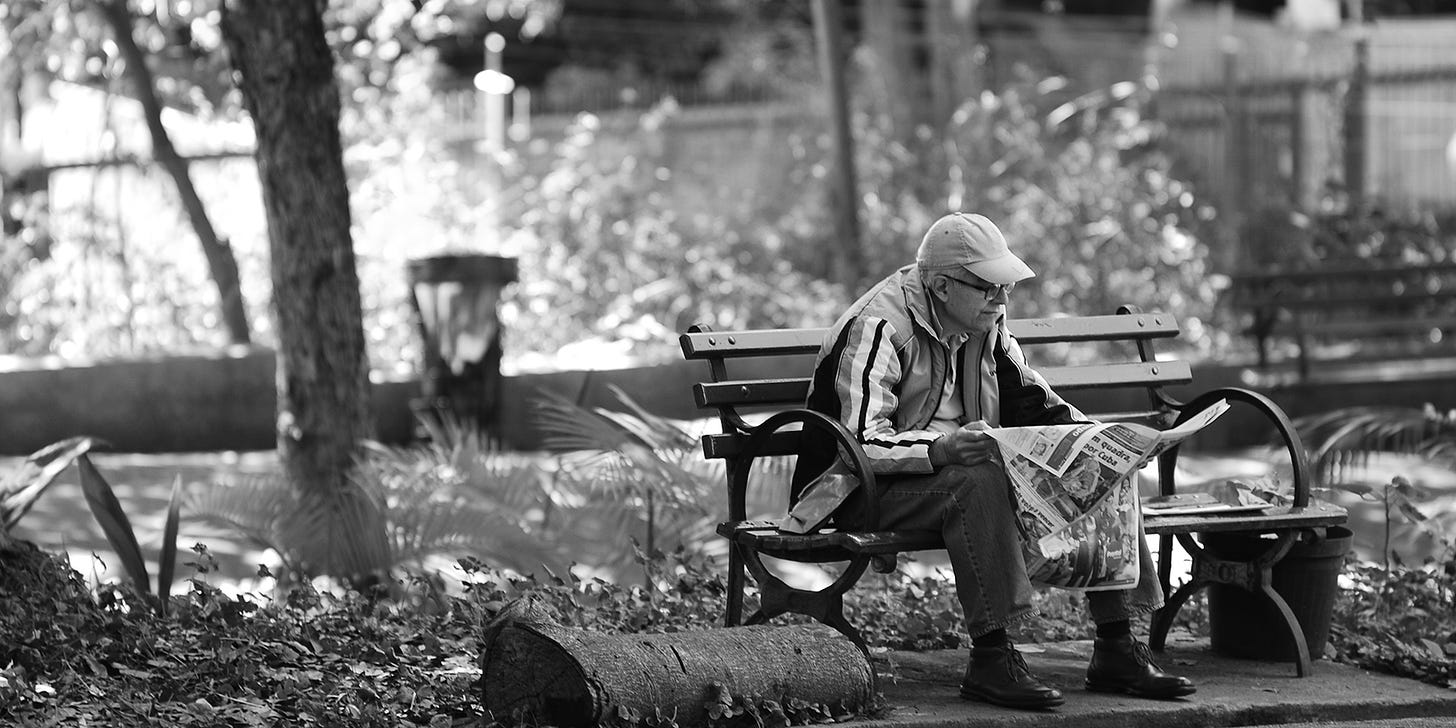Coffee News Roundup: Week Ending June 3rd
This week, workers at Intelligentsia Chicago file to unionize, Tim Horton's spied on and tracked users of its app, and coffee can help ward off the grim spectre of death.
Hello to you from sunny Scotland—let’s see what the coffee news fairies have in store for us this week.
Intelligentsia Chicago Workers File For Union Election - via Daily Coffee News
Workers at Intelligentsia Coffee in Chicago have announced their intent to form a union, in partnership with the International Brotherhood of Electrical Workers Local Union 1220—the same branch of the IBEW that helped Colectivo employees unionize last year.
Including workers at all five of Intelligentsia’s Chicago cafes, plus the roastery and warehouse, a successful drive would be the biggest win for unionization in specialty coffee since the Colectivo vote. As Sprudge writes in their article announcing the move, Intelligentsia’s role as one of “specialty coffee’s Big Three (along with North Carolina’s Counter Culture and Portland’s Stumptown Coffee)” means a win “would be one of the most significant union efforts in the world of coffee.”
The company has so far not commented on the news. It’s worth noting here that Intelligentsia, founded in 1995, is now a subsidiary of JDE Peet’s, which is in turn owned by JAB Holdings. The union would not cover workers outside of Chicago—Intelligentsia has locations in Los Angeles, New York, Boston, and Texas.
“We are very proud of the workers at Intelligentsia Coffee,” Local 1220 Business Manager John Rizzo said in the announcement. “They have taken a bold and necessary step toward ensuring that every employee has fair treatment and dignity in their work. Further, they have indicated the necessity for both safety in the workplace and fair wages in order to make a modest living without having to work for multiple employers.”
Canada's Beloved Tim Hortons Spied On Everyone Who Used Its App, Regulator Says - via Vice
Tim Hortons used mobile data to track users’ every move, essentially spying on them even when they weren’t using the company’s app, according to Canadian regulators.
A Canadian institution, commonly known as Timmies and famous for its Timbits donuts, the coffee chain “clearly crossed the line by amassing a huge amount of highly sensitive information about its customers,” said Daniel Therrien, the Privacy Commissioner of Canada. “Following people’s movements every few minutes of every day was clearly an inappropriate form of surveillance.”
According to the regulators, the company tracked “every time users entered or left a Tim Hortons competitor, a major sports venue, or their home or workplace,” and this data was then used to determine whether users switched to a competitor.
Tim Hortons, which is owned by the multinational holding company Restaurant Brands International, has been told to delete any remaining location data and make privacy improvements. No fine has been imposed, something that Therrien is not happy about: “Federally, I do not have the authority to impose penalty—I hope that will change soon,” he told the Financial Post (which broke the story back in 2020). “There should be financial penalties.”
How Starbucks Uses Dubious 'Connection Scores' To Evaluate Its Workforce - via NBC News
If you’ve ever been a barista, chances are you’ve felt the pressure of customer reviews, whether you’re called out by name or just an identifying feature (“That dude with the British accent” for example).
At Starbucks, this customer feedback, or “connection score” as the company terms it, is used to evaluate employees’ performances and, in some cases, has led to reduced hours in the face of low scores.
Scores are compiled through email surveys sent to Starbucks rewards members, who are asked to rate a variety of elements of their recent visit—from store cleanliness to drink quality to the one most relevant to the connection score: “The employees made an effort to get to know me.” While perfect scores can increase the location’s metric, anything less is basically a zero.
While these connection scores have been in use for years, NBC News reports that the current unionization campaign is in some part inspired by the way these scores affect workers. “It’s just a really good indication of the way the partners feel that corporate is sort of out of touch with the reality of the job,” one employee said.
More Headlines
Four 90+ Lots Among Winners of 2022 El Salvador Cup of Excellence
ICO Composite Indicator Price Remains Strong: ICO Report
World of Coffee Introduces Green Coffee Buyers and Sellers Program
The Week In Coffee Unionizing
Workers United has created a $1 million fund to cover lost pay for Starbucks baristas who go on strike. “This strike fund will allow all workers to take the type of collective action necessary as they fight for a fair contract,” said Richard Minter, Workers United’s international organizing director.
This week, Starbucks workers won their votes in Texas, three in Boston, three in Oregon, three in Maryland, two in South Carolina, one in Oklahoma, and possibly more that I missed. There have been a lot—60 total in May.
Meanwhile, in Missoula, Montana, workers at Black Coffee Roasting Company voted to unionize, winning their vote 7-2. Bargaining with management in the spring had brought a pay hike and paid time off, which inspired the decision to form a union. “It feels great, it really does feel like we’re part of something larger in that sense,” union member Keefe Farr told the Missoula Current.
The Week In Corporate Coffeewashing
No specific examples of coffeewashing this week, but if you’re looking for an analysis of the wider landscape of climate change as it pertains to coffee then the latest Boss Barista newsletter is worth a read. What We've Been Led to Believe About Coffee and Climate Change tries to shift the focus from individuals to the big coffee companies, ten of which are responsible for roasting 35% of the world’s coffee, a huge amount that generates some $55 billion per year in revenue.
The article ends:
We may not have coffee in the next few decades, or coffee may look and taste different than it does now. And while we can take responsibility for our individual actions, we have to look beyond those, too, and recognize how corporations actively make us feel like we must shoulder this burden alone.
It’s a worthwhile read, and the Boss Barista newsletter is well worth a subscribe (if you haven’t already).
Is Coffee Good For You?
It sure is! Lots of news stories this week about a study in Annals of Internal Medicine that links coffee, once again, to a lower risk of early death—whether or not you add sugar.
While the “risk of early death” thing always causes a raised eyebrow (is coffee going to somehow stop me slipping in the shower, or being hit by a bus?) it adds to the piles of recent studies that all suggest coffee can help with longevity.
As Daily Coffee News succinctly puts it: “the study found that people who drank a 1.5 to 3.5 cups of coffee per day, whether plain black or sweetened with a small amount of sugar, were 29%-31% less likely to die from any cause during the seven-year study period.”
“They found that drinking moderate levels of coffee regularly was associated with a lower risk of dying from any cause, dying from cancer, and dying from heart disease,” journal deputy editor Dr. Christina Wee wrote in an accompanying editorial. “The lower risk of dying associated with moderate levels of coffee drinking was true regardless of whether you drank decaffeinated coffee, instant coffee, or ground coffee.”
The data was self-reported, however, so must be viewed in that light—“The observational nature of this new study means these conclusions are far from definitive,” one expert told the Guardian.
What To Read
Couplet Coffee Is Doing Coffee Social Media Better by Valorie Clark
Can Coffee Survive in a Warmer World? (podcast)
Until next week, drink good coffee. Perhaps even with a little sugar.






